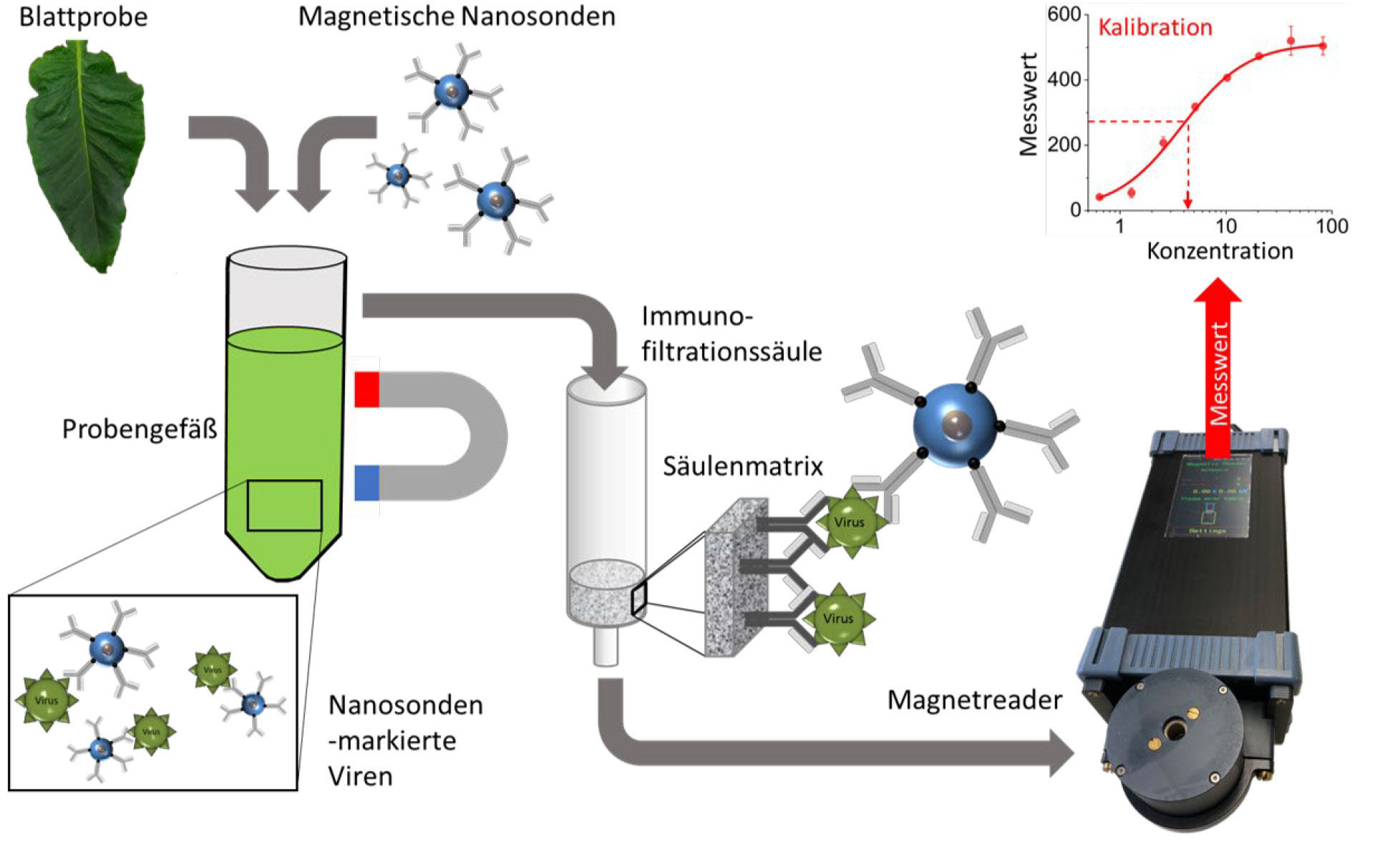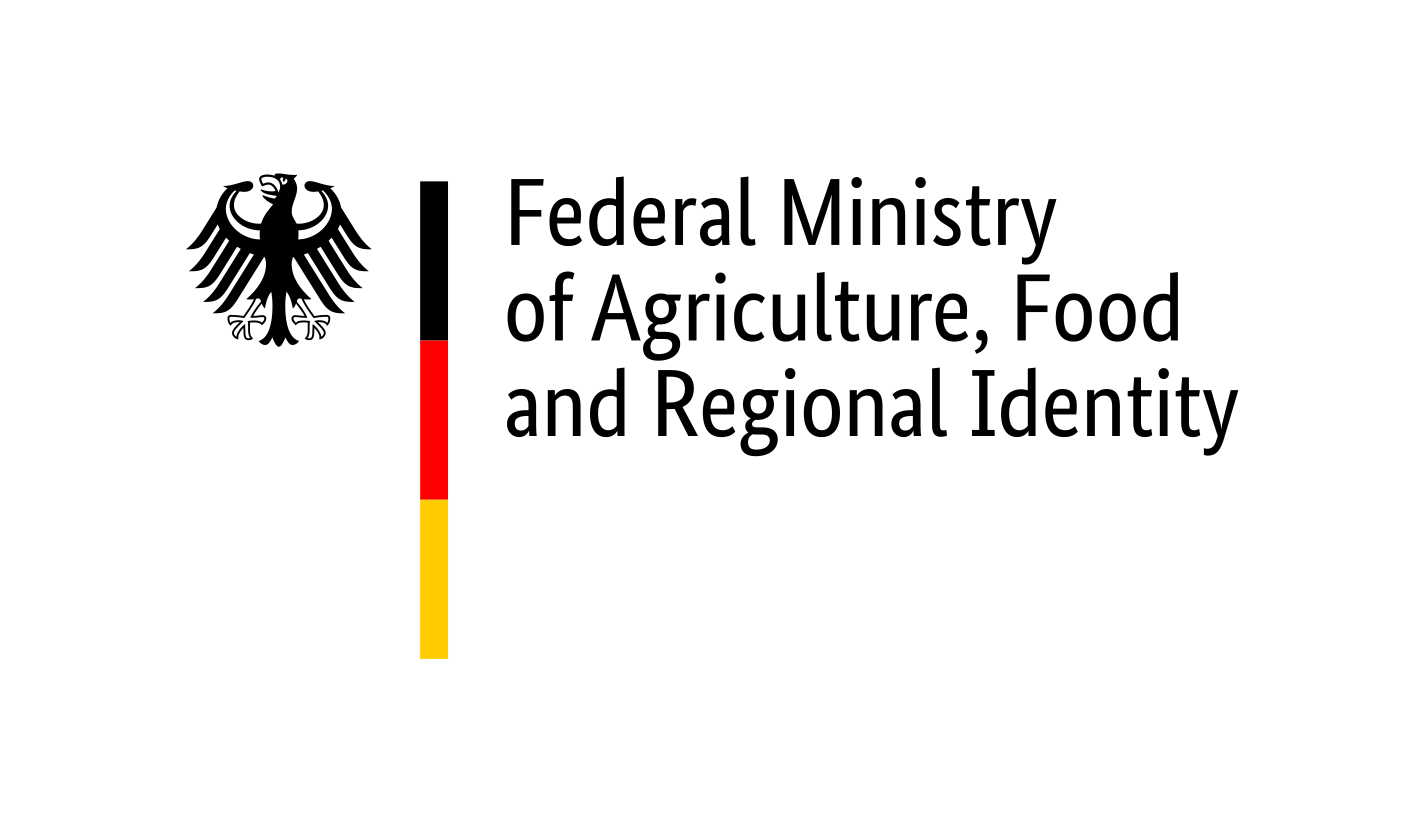When plants show unspecific disease symptoms, determining the pathogen is labor-intensive and time-consuming and usually requires laboratory diagnostics. It often takes several days until the result is available. This is problematic, since the risk of transmission is particularly large with highly contagious quarantine pathogens and the entire plant population must then be destroyed.
The project "Nanoprobe-based screening approach for plant pathogen detection" (NanoSPoD) focuses on the quarantine pathogen Tomato brown rugose fruit virus (ToBRFV), which leads to huge crop losses in tomato and bell pepper plants. In order to limit its spread, a rapid mobile test system is to be developed for control authorities such as the chambers of agriculture. In our analysis approach, viruses are specifically labelled using antibody-coupled magnetic nanoprobes and the viral load is determined by means of a mobile handheld measuring device via the magnetic measurement signal. After a short sample preparation, on-site analyses can be performed within a few minutes, which is a major time advantage over laboratory diagnostics.
To clean the sample and increase sensitivity, the virus can be separated and concentrated from homogenized plant material using magnetic enrichment, thereby capturing the virus by magnetic nanoprobes and deposing it on the sample vessel wall using a magnet. The liquid can be removed and the nanoprobes resuspended in a smaller volume of buffer. For the measurement, the enriched sample is flushed through a column matrix coated with a virus-specific antibody. The virus particles labelled with magnetic nanoprobes are then captured on the matrix surface and the concentration of the virus can be determined using a calibration via the magnetic measurement signal.
Further developments of the magnetic measuring device should also enable the quantitative measurement of multiple pathogens in one sample in the future.
In addition to the mobile test system for defined pathogens, a second approach is being developed for the identification of unknown pathogens. This is based on "next generation sequencing" (NGS) methods, which have made the decoding of genetic information cheaper and faster in recent years. In our NGS screening, the RNA of the sample is first sequenced and then the pathogen is determined based on matches of the sequences with the new sequence database "MorpheusFood" established by the project partner Computomics GmbH. The NGS method offers the advantage that new pathogens can be identified in addition to known pathogens.
The availability of mobile sequencing devices makes the mobile use of our NGS screening conceivable in the future.
The NanoSPoD project is funded and supervised by the Federal Office for Agriculture and Food (BLE) as the project management organization on behalf of the Federal Ministry of Food and Agriculture (BMEL). We are supported by our partners Computomics GmbH, GeneCon International GmbH and the Institute for Biological Information Processes (IBI-3) Research Group Magnetic Field Sensors of the Forschungszentrum Jülich.
 Fraunhofer Institute for Molecular Biology and Applied Ecology IME
Fraunhofer Institute for Molecular Biology and Applied Ecology IME
